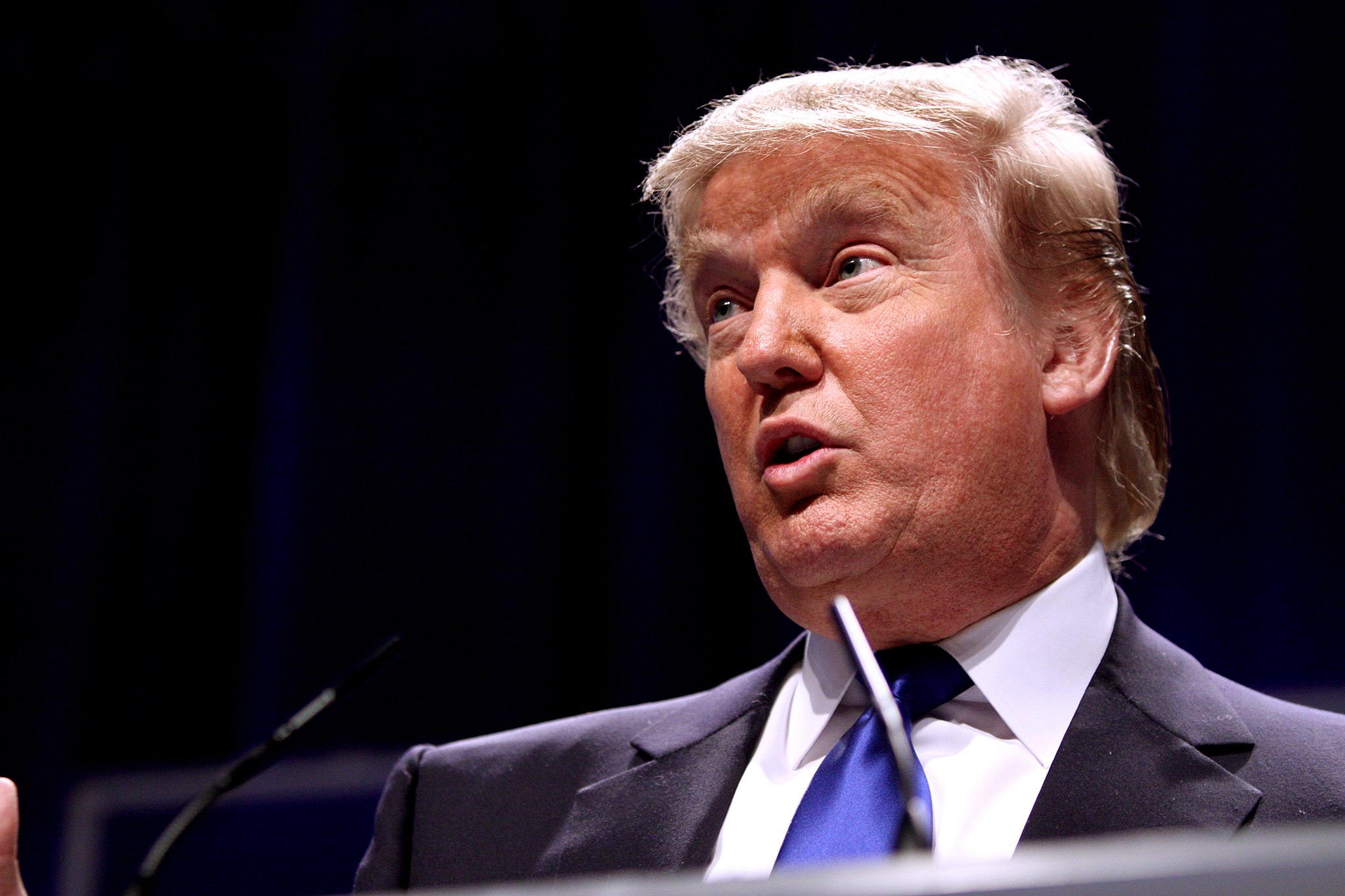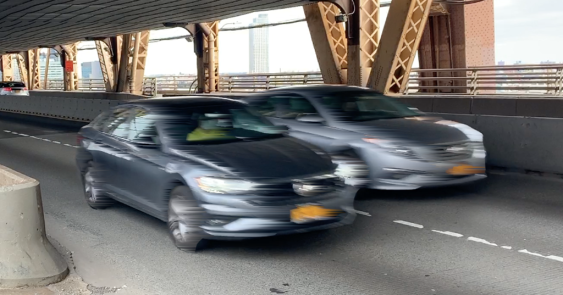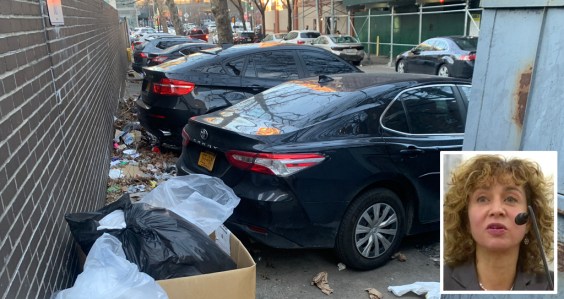Decoding Trump’s Racist ‘War on Suburbs’ Rhetoric
6:53 PM EDT on August 17, 2020

Photo by Gage Skidmore (Creative Commons).
President Trump has renewed his promise to "protect America's suburbs" from the supposed threat of zoning reform that would make them less car-dependent and more accessible to the low-income, using a racist dogwhistle to his White supremacist supporters about the debunked association between "urban" poverty and violent crime.
In a Wall Street Journal opinion column co-authored with Housing and Urban Development Secretary Ben Carson, Trump applauded his administration for striking down the Obama-era Affirmatively Furthering Fair Housing Rule, which required recipients of federal housing funds to evaluate the equity impacts of their programs. Trump claimed that the rule was forcing communities to build high-density, low-income apartment buildings in suburban enclaves zoned exclusively for single family homes — or, as Trump and Carson put it, "mak[ing] sure there is no escape" from "the crime and chaos [found] in Democrat-run cities."
...Your housing prices will go up based on the market, and crime will go down. I have rescinded the Obama-Biden AFFH Rule. Enjoy!
— Donald J. Trump (@realDonaldTrump) July 29, 2020
The op-ed was the president's latest attempt to frame exclusionary zoning as a matter of local autonomy under fire rather than a direct continuation of centuries of structural racism in housing policy conducted under the cover of "neutral" modern law. Since the Obama-era rule was eliminated on July 21, Trump has applauded himself numerous times on Twitter and at various public events, even claiming that his Democratic challenger, Joe Biden, would "destroy the beautiful suburbs" if elected.
But as experts immediately pointed out, Trump is openly lying about impact of the Obama rule, which did not force any zoning changes in suburban neighborhoods. And they also noted that his larger rhetoric was contributing to the spread of disturbing misinformation about the impact of suburban land-use choices on our national transportation reality.
Here are just four of the biggest lies from the Wall Street Journal op-ed that every sustainable transportation advocate needs to help resist.
Lie #1: The Affirmatively Furthering Fair Housing Rule forced suburbs to build low-income housing
Obama's policies, while well-intentioned, didn't really threaten the suburbs — even though some housing advocates wished that Obama had pushed for true land-use reform.
In their op-ed, Trump and Carson claimed that the Obama administration had set into motion a "radical social-engineering project that would have empowered the Department of Housing and Urban Development to abolish single-family zoning, compel the construction of high-density 'stack and pack' apartment buildings in residential neighborhoods, and forcibly transform neighborhoods across America so they look and feel the way far-left ideologues and technocratic bureaucrats think they should."
But Trump's characterization of Obama's policies is simply wrong — and supporters of land-use reform are still angered that Obama did not push for more.
In an incendiary op-ed for Planetizen, UCLA law professor Jonathan Zasloff said Obama's policy "literally contained no rules for how state and local governments were actually supposed to 'Affirmatively Further Fair Housing,'" and only required municipalities to submit an annual self-assessment of the racial and income impacts of their housing programs. But cities didn't have to actually do anything to address the social disparities they found in the course of that assessment — and they certainly didn't have to change anything as fundamental as their zoning codes.
"One could hardly imagine a rule better calculated to appease Republican defenders of White suburbia," Zasloff added — but Trump either didn't get the memo, or chose to deliberately misrepresent the rule in the media.
Zasloff himself suggests that a federal policy that did prompt cities to fix bad zoning (and other inequitable distributions of key public resources) is crucial to disrupting the many and lingering legacies of redlining and racially restrictive covenants in rich, white suburbs — not to mention the traffic violence crisis that is raging in poor, disproportionately non-white ones.
Lie #2: Suburban land-use policy is a matter of community preference, not our collective climate future
Of course, when Trump and Carson claim that "liberals...say the suburbs are a problem because of unacceptably high levels of greenhouse gases generated by a family with its own house, a yard, two cars and a dog," they're being a little disingenuous — because most leading "liberal" politicians are more focused on electrifying both cars in that mythical suburban garage than they are in reducing vehicle miles travelled. But Trump is lying outright when he says that outsized suburban contributions to climate change are just a matter of liberal opinion — because they're actually a matter of fact.
A 2014 study out of UC Berkeley found that "the average carbon footprint of households living in the center of large, population-dense urban cities is about 50 percent below [the national] average, while households in distant suburbs are up to twice the average."
Moreover, when they scrutinized the specific sources of suburban household emissions, the researchers found that they were "dominated by emissions from cars, trucks and other forms of transportation" — emissions that are too often challenging to avoid in suburban areas with little transit, dangerous, car-dominated roads that threaten the lives of walkers and bicyclists, as well as long commutes to job centers and basic services.
Of course, the idea that any prominent liberals are somehow calling for an outright abolition of the suburbs to solve this disparity is a Trumpian fantasy. As Paul Krugman pointed out in the New York Times, challenger Joe Biden's housing plan is heavy on "reasonable, significant, but hardly revolutionary stuff — things like expanding rental vouchers while cracking down on redlining and exclusionary zoning. Trump may claim that such policies would 'destroy suburbia,' but that only makes sense if you believe that the only alternative to bloody anarchy is a community that looks exactly like Levittown in 1955."
Those far-from-radical policies, though, would cut down on greenhouse gas emissions by allowing people of more income levels to live closer to suburban workplaces and shorten their commute distances. And allowing for mixed-commercial zoning in addition to multi-family zoning would give suburb-dwellers access to much-needed services within walking or biking distance of their homes, especially when built in concert with walking, biking, and accessibility improvements on suburban roads — something that Biden isn't stressing, but should.
Lie #3: Adding low-income housing to suburban areas increases crime and lowers property values
Perhaps the most easily debunked claim of Trump's op-ed is the idea that low-income housing construction increases neighborhood crime levels — it actually does the opposite — or depresses surrounding property values — which it actually may help increase.
The only concrete example the President even gives of a crime-induced exodus is the Upper West Side of Manhattan, an area that recently drew a minor flurry of racist, classist and abelist pseudo-journalism following the establishment temporary homeless shelters in neighborhood hotels during the pandemic, which the New York Post claimed were "packed with junkies and registered sex offenders." What none one of articles could offer was any quantifiable proof that crime or move-outs had increased as the President claimed — and of course, providing protection to the unhoused during a historic global health crisis is drastically different than zoning reform of any kind.
But racist coded statements about the criminalization of the poor, of course, don't need the support of facts. And if Carson and Trump truly cared about controlling violence rather than signaling their support for the rich suburbanites they imagine are at the core of the party base, they would be champing at the bit to densify many suburbs.
When you look specifically at the transportation realm, the suburbs are actually disproportionately impacted by many forms of violent crime in the United States — as well as non-criminalized forms of violence, like state-sanctioned police killings of people of color.
Studies have shown that car crashes happen more often and are more fatal per capita in suburban contexts than in dense cities, especially in poor suburban environments with high concentrations of people who can't afford cars attempting to navigate high-speed roads that were never designed with pedestrians and wheelchair users in mind. Meanwhile, police shootings of people of color are on the rise in suburban America, where they were already disproportionate, largely due to suburban police budgets' dependence on traffic fines to sustain their operations, which has been shown to lead to racial profiling and aggressive tactics. In urbanized environments, policing killings are actually falling.
Lie #4: The suburbs are the land of the (rich, white) American dream
Perhaps the most troubling aspect of Trump's vow to defend the realm of the suburbs is the fact that, increasingly, the suburbs he's imagining – affluent, financially stable, and not very subtly coded white — simply don't exist.
A full 50 percent of Americans self-identify as suburb dwellers, but there's really no good federal definition of the term — and the lived reality of many of the people who live in what were once "bedroom communities" is drastically different today than the lifestyle Trump and Carson are pledging to protect. Even single family-only suburbs are increasingly the home to the nation's fastest-rising concentrations of poverty. And many of the nation's most infamously poor suburbs, like Ferguson, Mo., are populated predominantly by the non-white poor, many of whom have been pushed out of rapidly gentrifying city centers as white residents have moved back to the urban core.
So when Trump characterizes the typical suburban family as a nuclear one with two cars in the garage, he's a little off base — because increasingly, today's suburbanites can't afford cars at all. And yet they're being forced to navigate roads that were built with huge swaths of single-occupancy vehicles in mind — often on foot or in a wheelchair, and if they're lucky, on their way to a transit line that is likely under-funded.
If Trump really wanted to protect the residents of the suburbs and ensure their future prosperity, he wouldn't be talking about keeping criminal boogeymen out of tony bedroom communities and cheap houses out of their appraisal comps. He'd be talking about police reform to protect the non-white from state-sanctioned brutality. He'd be talking about robust transit funding planned with the robust engagement of community members who can't afford cars, but struggle to reach job centers and basic services on other available modes. He'd be talking about improving the range of housing options in every community — urban, suburban and beyond — and also improving the range of services so every neighborhood was a 15 minute neighborhood. He'd be talking about sidewalks.
But we all know what Trump is really talking about, or more importantly, who he's really talking to: a racist white electorate who is too easily manipulated by fearmongering and lies.
Kea Wilson has more than a dozen years experience as a writer telling emotional, urgent and actionable stories that motivate average Americans to get involved in making their cities better places. She is also a novelist, cyclist, and affordable housing advocate. She previously worked at Strong Towns, and currently lives in St. Louis, MO. Kea can be reached at kea@streetsblog.org or on Twitter @streetsblogkea. Please reach out to her with tips and submissions.
Read More:
Stay in touch
Sign up for our free newsletter
More from Streetsblog USA
Talking Headways Podcast: Details of Development Reform in Minnesota, Part I
Jim Kumon of Electric Housing discusses his work as a developer and urban policy educator in the Twin Cities.
Thursday’s Headlines Don’t Like Riding on the Passenger Side
Can you take me to the store, and then the bank? I've got five dollars you can put in the tank.
Study: When Speed Limits Rise on Interstates, So Do Crash Hot Spots on Nearby Roads
Rising interstate speeds don't just make roads deadlier for people who drive on them — and local decision makers need to be prepared.
Calif. Bill to Require Speed Control in Vehicles Goes Limp
Also passed yesterday were S.B 961, the Complete Streets bill, a bill on Bay Area transit funding, and a prohibition on state funding for Class III bikeways.
Under Threat of Federal Suit (Again!), NYC Promises Action on ‘Unacceptable’ Illegal Police Parking
A deputy mayor made a flat-out promise to eliminate illegal police parking that violates the Americans With Disabilities Act. But when? How? We don't know.




